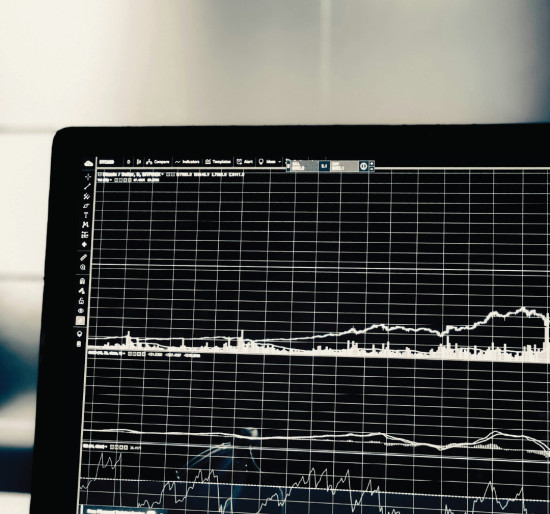Turning data into a strategic advantage
Data isn’t just information, it’s an essential resource for forecasting, risk management, and operational efficiency
Marex data analyst Kai Henderson discusses how to translate raw data into actionable insights that both optimise operations and manage risks

As the energy industry faces increasing pressure to optimise operations and manage risks, the role of data has never been more critical.
Yet many companies still struggle to translate raw data into actionable insights.
This challenge is something I’ve become increasingly aware of through both university and working at Marex. As part of my data science degree, I’ve been exploring exactly how we can bridge the gap between data collection and meaningful, real-time decision-making.
From predictive analytics to machine learning models, the tools and techniques I’m learning are all aimed at one goal: turning data into a strategic advantage.
To me, data is a dynamic asset with the power to shape outcomes.
It's not just information - it’s an essential resource for forecasting, risk management, and operational efficiency. Every data set holds clues to potential hazards, efficiency bottlenecks, and even opportunities for growth.
Data can predict the probability of an equipment failure, model the impact of environmental factors on operations, and inform proactive safety protocols. It’s no longer just about reporting past performance but about creating a resilient, forward-looking strategy for our clients in the energy sector.
Necessity
Looking ahead, I see data science—and particularly advancements in AI (artificial intelligence), machine learning, and predictive analytics—becoming fundamental to driving efficiency, sustainability and innovation across many industries.
The rapid progress in AI over the last couple of years has been nothing short of remarkable. What once seemed futuristic is now accessible and transforming how we operate. For businesses, this progress means that adopting some level of data capability isn’t just an advantage, it’s becoming a necessity.
In my view, companies that don’t embrace even the basics of data science risk falling behind. Simple steps, like cleaning data to make sure it’s accurate or performing straightforward analyses, allow businesses to understand what their data is telling them and make informed decisions. Whether it’s optimising operations, reducing environmental impact, or improving safety, even modest data practices can yield measurable benefits.
Predictive modelling
However, the real potential lies in harnessing advanced analytics and predictive models.
These technologies go beyond describing what has happened to help businesses anticipate what might happen.
Imagine a scenario where a company can predict maintenance needs, reducing costly downtime, or use data insights to refine energy usage patterns for sustainability. The ability to project forward is becoming essential in volatile sectors like energy, where factors change rapidly.
As AI and machine learning continue to evolve, they’ll undoubtedly reshape business landscapes, empowering companies to innovate, cut inefficiencies, and respond proactively to challenges.
Forward-facing
In my view, the next five years will be pivotal. Businesses that haven’t fully integrated AI and predictive analytics into their operations by then will struggle to keep pace with those that have.
As industries become increasingly data-driven, companies that continue to rely on traditional methods risk being left behind, unable to match the agility and foresight of data-enabled competitors.
The data revolution isn’t a distant prospect - it’s already reshaping the landscape, influencing everything from decision-making and risk management to customer insights and operational efficiency.
Companies that seize this moment, investing in the right data infrastructure and analytical capabilities, will be positioned to thrive, leveraging predictive insights that allow them to adapt and respond to change faster than ever before.
For those who don’t, the cost of inaction may be steep. In a world where actionable insights can be the difference between success and stagnation, adopting data practices is no longer optional, it’s essential.
The competitive advantage offered by predictive analytics, AI and machine learning is only growing, and I believe businesses that act now will be the ones leading their industries, setting new standards, and redefining what’s possible.
Marex expertise
Looking ahead, my goal in data science is to help companies truly understand their data, unlocking valuable insights that drive smarter, more confident decision-making.
In many organisations, vast amounts of data are collected but remain untapped, and this is where I see enormous potential.
By helping businesses translate raw data into actionable insights, I want to empower them to make informed choices that boost efficiency, mitigate risks, and open doors to innovation.
Marex, with its foundation in risk and marine consultancy, is uniquely positioned to support not only energy companies but organisations across different sectors.
While we specialise in energy with risk and marine, our expertise is broadly applicable to other industries.
My vision is to start by enabling companies to make the most of their existing data. From ensuring data quality and accuracy to introducing basic analytics that reveal key trends, I aim to make data a natural part of their decision-making processes.
By embedding a data-first mindset, I believe companies can gradually adopt advanced analytics, moving from descriptive insights to predictive and prescriptive capabilities that position them for long-term success.
This journey, guided by Marex’s expertise in risk and industry insights, is one I’m excited to lead and support across a range of sectors.
- Is it time to find out how you could be making the most of your organisation’s existing data? Get in touch with Kai at kai.henderson@mmass.co.uk to start the conversation…










